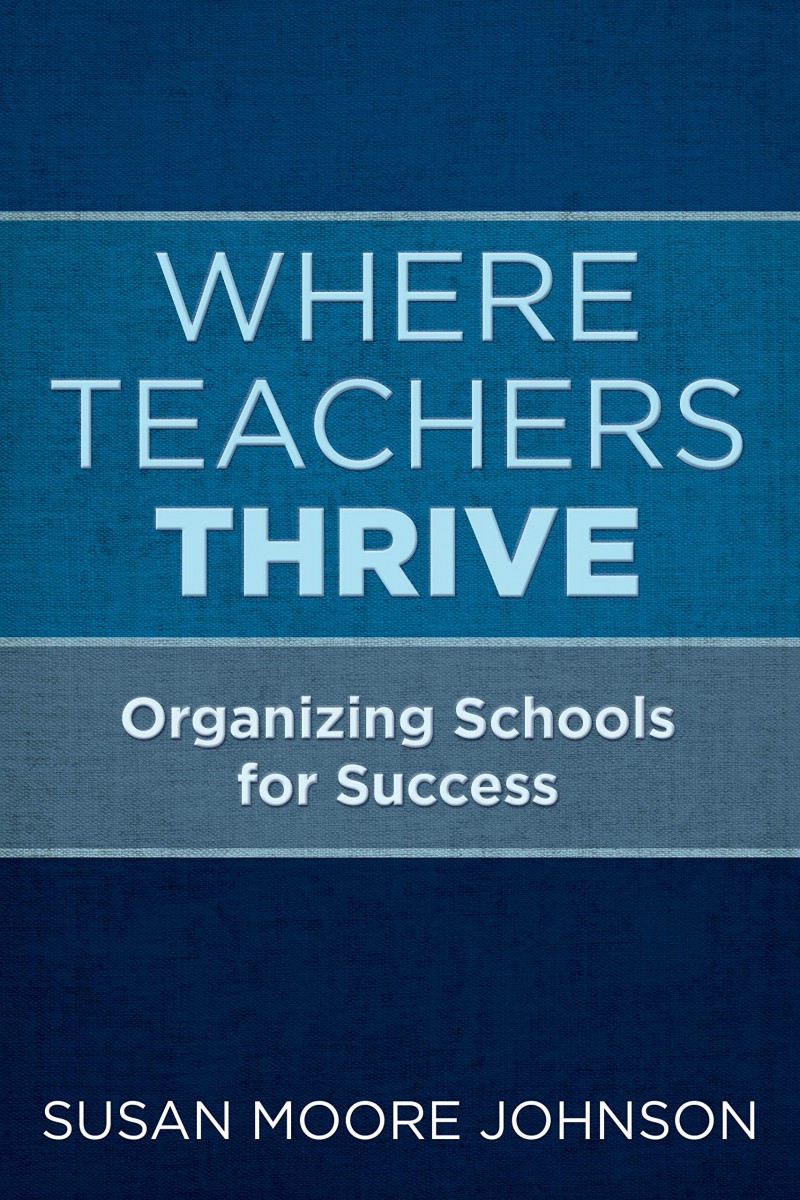Thursday | October 15, 2020

In Where Teachers Thrive Dr. Susan Moore Johnson presents a powerful argument about the importance of the school as an organization in effective teaching and learning. Based on case studies of 14 high-poverty, urban schools, Johnson explains why some schools she studied failed miserably and others achieved remarkable success.
In this discussion Johnson exploree the implications of her work for principals, teachers, and policymakers as they confront the challenges of education in a Covid-19 world.
This conversation was facilitated by a former student of Johnson's, Dr. Shimon Waronker, Principal of Yeshiva - Beth Rivkah Colleges, Melbourne Australia.
In Where Teachers Thrive, Johnson explores what worked in the schools she studied, what didn’t work, and why. In successful schools, principals relied on teachers as essential partners in diagnosing and addressing their school’s challenges. Together, these educators designed an array of school-based systems for doing their work together. Such systems included a rich and interactive hiring process; teams that met regularly to learn and make decisions about curriculum, instruction, and their students; informative classroom supervision for ongoing improvement; and approaches to discipline and support for students and families.
Where to Buy
Where Teachers Thrive
Harvard Ed Press Use WTTF20 to save 20%
More About
Where Teachers Thrive
Johnson argues that together these systems provide a comprehensive, mutually reinforcing set of practices that support schools in delivering results that far exceed the sum of teachers’ individual efforts. Together these systems define a school’s unique professional culture, or as teachers often say, “How we do things here.”
In this conversation, Johnson reflects on how these lessons about well-organized schools help explain what happened in March 2020 as US schools suddenly closed and moved to distance learning. Schools that already relied on shared-decisionmaking and established systems could address the new demands they encountered together, while other schools flailed and failed, expecting individual teachers to solve unprecedented problems on their own. Today, as schools face cycles of reopening and closing, educators can learn from Johnson’s study and develop the capacity they need to anticipate and respond to challenges together.
Dr. Susan Moore Johnson is the Jerome T. Murphy Research Professor at the Harvard Graduate School of Education and studies, teaches, and consults about teacher policy, organizational change, and administrative practice. A former high school teacher and administrator, Johnson has a continuing interest in the work of teachers and the reform of schools. She has studied the leadership of superintendents and organization of school districts; the effects of collective bargaining on schools; the priorities of local teacher union leaders; teacher evaluation; the use of incentive pay plans for teachers; and the school as a context for adult work. Johnson directs the Project on the Next Generation of Teachers, which examines how best to recruit, develop, and retain a strong teaching force. She is the author or co-author of six books and many articles. She served as academic dean of the Ed School from 1993 to 1999. Between 2007 and 2015, Johnson was co-chair of the Public Education Leadership Project (PELP) a collaboration between Harvard's Education and Business Schools.
Dr. Shimon Waronker is currently serving as Principal of one of the largest Jewish Schools in Australia, Yeshivah Beth Rivkah Colleges. He founded three thriving schools in some of the toughest neighbourhoods in New York City called The New American Academies. Waronker started his career as a public middle school teacher and has a Doctorate from the Harvard Graduate School of Education.
